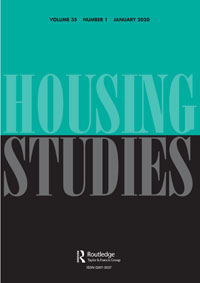Bernard, Josef, Šafr, Jiří. 2019. „The other disadvantaged neighbourhood: income related effects of living in rural peripheries“. Housing Studies. 34 (6): 946-973. ISSN 0267-3037. Available from: https://www.tandfonline.com/doi/abs/10.1080/02673037.2018.1504008
In this article, we argue that similarly to the literature on urban neighbourhood effects, the idea of disadvantaging residential environment can be used to explain the socio-economic disadvantage of residents in rural peripheries. We present arguments as to why it is appropriate to consider the effects of the residential environment in a micro-regional perspective and outside of metropolitan areas. These effects are empirically analysed using income related data from the Czech Republic. We ask whether income is negatively affected by housing in peripheral micro-regions. The results confirm that the concept of residential disadvantage is also relevant in rural areas, and that in the Czech Republic residence in remote rural areas with limited educational levels and a high concentration of low-pay jobs has negative yet weak contextual effects, whereas increased levels of deprivation and social exclusion, typical also of many urban regions, are not decisive. A stronger negative impact of living in peripheries has been found on higher-skilled workers and women.
Department
Topics
Economy, City and Village, Wages and Incomes, Regions, Social Inequalities
